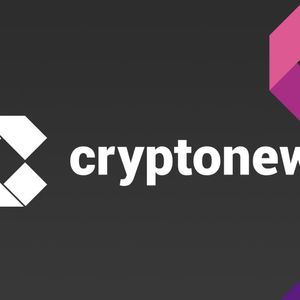Navigating Regulatory Compliance in Blockchain Development
6 min read
HodlX Guest Post Submit Your Post Blockchain tools are comparable to wildfire – fast-moving and capable of consuming anything that lies in their path. It has undeniable advantages – clear and permanent registers, extremely secure systems and the opportunity to eliminate intermediaries. But powerful as it is, it must be contained. That’s where regulation comes in, and as far as blockchain is concerned, those rules are still being written. Blockchain basics To put it really simply, if you think of a blockchain as an immutable ledger across a network of computers, every time someone performs a transaction – sends some cryptocurrency, updates a supply chain, whatever – it’s appended as a ‘block’ to this ledger. The magic is that everyone on the network checks the transaction, and the entire chain is nigh impossible to hack. Key features of blockchain Blockchain technology has certain characteristics which are decentralization, transparency, security and immutability. Decentralization is the shift of power from central authority to all network participants. Transparency enables every member to see the transactions and their verification and hence promotes trust. Security derives from cryptographic measures that verify data integrity and maintain confidentiality. Moreover, the immutability of records ensures a transaction that is recorded cannot be altered except with the majority approval, thus increasing reliability. Importance in modern transactions In the current digital landscape, there is a need for robust and streamlined systems for the management of transactions. Yet, with the integration of blockchain technology, processes such as payments, supply chain management and asset tracking could be streamlined. Due to its unique features, it is getting integrated into diverse fields, as a result of which newer solutions are being developed. Regulatory landscape for blockchain development Blockchain is an immutable ledger that serves as a comprehensive record of access, change and values. Once the information is entered into the blockchain, no user can modify, delete or alter it. When these features merge with the daily business process, businesses can prepare for their regulatory needs from the first stage of their blockchain product development or service origin. Envision a financial ecosystem that is without intermediaries such as banks. Transactions cross borders, and contracts execute automatically. This is the disintermediating power of blockchain technology and why regulators have a huge headache. The bedrock principles of blockchain present a novel regulatory conundrum. Decentralization reduces the power of central authority. The greater privacy offered by certain blockchains poses problems when it comes to illegal activities. And because it’s all but borderless, specifying what jurisdictions and laws apply to it is murky at best. No central authority involvement Traditional financial systems were all about centralization. Banks and governments hold the central economic power over how transactions happen. Anonymity – A double-edged sword Blockchains are private in comparison to traditional banking, but that is not necessarily an advantage. Criminals view this as a way to launder money, evade taxation and bankroll illicit enterprises. They fear tracing dirty money on blockchains could become a nightmare. Cross-border chaos It is an indisputable fact that the global nature of blockchain technology creates a complex regulatory environment as jurisdictions worldwide grapple with differing legal frameworks. That makes a massive legal headache – whose laws govern if participants are scattered all over the globe So, if something goes wrong, who investigates And what if different countries have vastly different regulations regarding blockchain Tech outpaces the law Laws and regulations take a long time to catch up with technology, but blockchain is going faster than lightning. Emerging concepts such as crypto assets and DeFi (decentralized finance) don’t readily fit into old legal frameworks. Businesses are left guessing about what’s legal, and loopholes appear that bad actors are all too eager to exploit. Smart contracts – T he new playground for legal battles Yes, self-authenticating contracts enforced by the blockchain are fascinating, but they also raise a whole new set of questions. If they go haywire, who’s responsible What if fraud or an error takes place How do you even adjudicate a dispute without a traditional arbitrator Regulators are scrambling to find a way to offer any protection with an arrangement like this. Ensuring public safety – A path unknown The job of regulators is to keep the financial system safe and protect ordinary people. But the intricacies of blockchain also create a new realm of potential cons. The inherent volatility of cryptocurrency markets poses regulatory challenges in ensuring market stability and protecting the integrity of the financial system. Regulators face the challenge of establishing clear guidelines and promoting public awareness regarding the complexities and potential uncertainties of blockchain and cryptocurrency technologies. What blockchain businesses need to know If you are thinking of empowering your business operations with blockchain, it’s important to prioritize regulatory compliance with technology’s potential advantages. Here is a breakdown of key areas to focus on when incorporating blockchain into your business environment. AML/KYC – The compliance cornerstone Essential regulatory compliance mechanisms, such as AML (anti-money laundering) and KYC (know-your-customer) protocols, these procedures verify clients’ identities and avoid suspicious transactions. By implementing strong AML and KYC solutions, you can help protect your blockchain project from having dealings with bad actors. Blockchain solutions can help streamline these processes to secure efficiency without compromising compliance. Navigating complex securities laws It is critical to determine whether your blockchain tokens or assets are securities. They may not be under US law, but if they are, you could face enormous liability. Well-respected lawyers in the field have varying opinions on this issue. The law is unsettled, and for good reason. The SEC could also classify some of your tokens as investment contracts under the Howey test . If you fail to comply with the Business Startups Act (JOBS Act) regulations, you could incur penalties in the millions of dollars. Tax implications of crypto Tax implications flow ever more strongly from engaging in blockchain transactions. Governments everywhere – as much for the sake of their ledgers as for some notion of transparency – are keenly interested in who is doing what and with whom on the blockchain. Requiring reporting of basic blockchain transaction data is, at this point, a worldwide phenomenon. And it will surely come, in one form or another, even to those pockets of tax haven paradise that still offer sanctuary from the taxman. Future landscape of blockchain regulation Trends shaping regulatory developments With the evolution of blockchain, regulation will also continue to evolve. Some services, such as DeFi applications and NFTs (non-fungible tokens), are also being scrutinized by regulators. As an owner or stakeholder in blockchain, it will be critical for you to keep up with the trends. So, you need to equip yourself with more in-depth knowledge of experiences throughout your country and the trends in this industry. Importance of legal expertise Considering the challenges involved in blockchain technology, having legal professionals as a part of your planning is priceless. It requires a working knowledge of both the blockchain technology in question and the regional laws. Attorneys can provide your business with information on compliance requirements that will enable you to avoid potential issues that may cost your company in the future. Collaboration between regulators and innovators Blockchain regulation in the next decade will likely have a lot to do with regulatory innovation and its ability to work with existing systems. So, already, regulators and industry players need to collaborate on the rules that will allow them to innovate without making the public unsafe. This action can and should help to create a better climate for developing blockchains by promoting your interests with the relevant regulatory bodies. It is crucial to stay ahead of the curve with the potential regulations that may shape the future of blockchain and its respective applications as we move into uncharted territory with this transformative technology. DC Kumawat is the CEO of blockchain development company Orion InfoSolutions and is someone who has established himself as the perfect blend of optimism and calculated risks. Check Latest Headlines on HodlX Follow Us on Twitter Facebook Telegram Check out the Latest Industry Announcements Disclaimer: Opinions expressed at The Daily Hodl are not investment advice. Investors should do their due diligence before making any high-risk investments in Bitcoin, cryptocurrency or digital assets. Please be advised that your transfers and trades are at your own risk, and any loses you may incur are your responsibility. The Daily Hodl does not recommend the buying or selling of any cryptocurrencies or digital assets, nor is The Daily Hodl an investment advisor. Please note that The Daily Hodl participates in affiliate marketing. Generated Image: DALLE3 The post Navigating Regulatory Compliance in Blockchain Development appeared first on The Daily Hodl .

Source: The Daily Hodl


